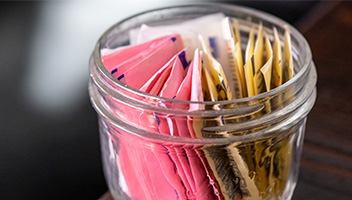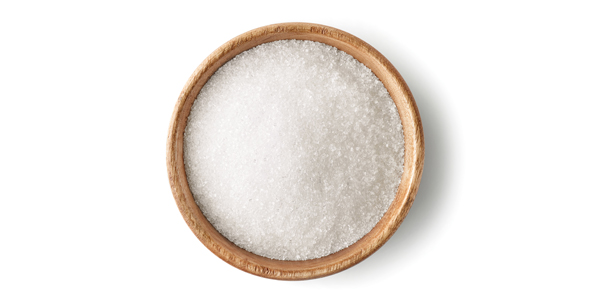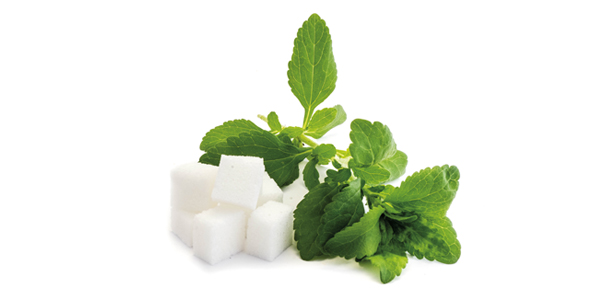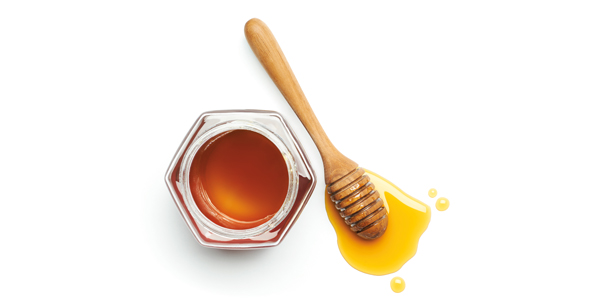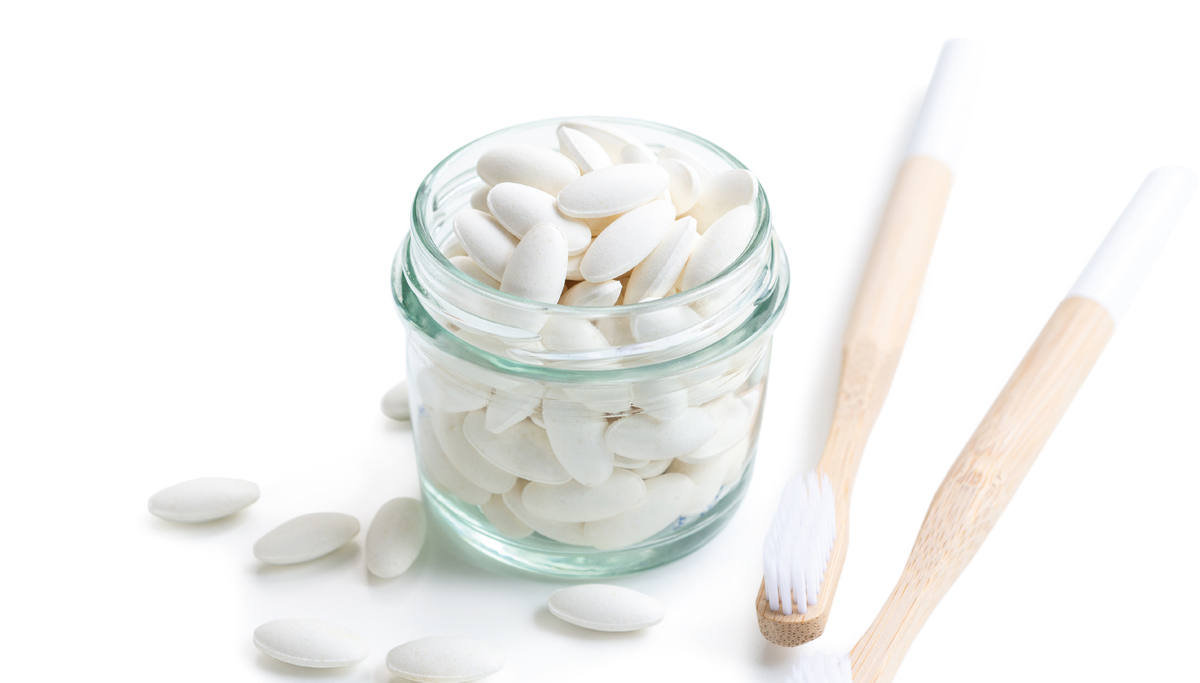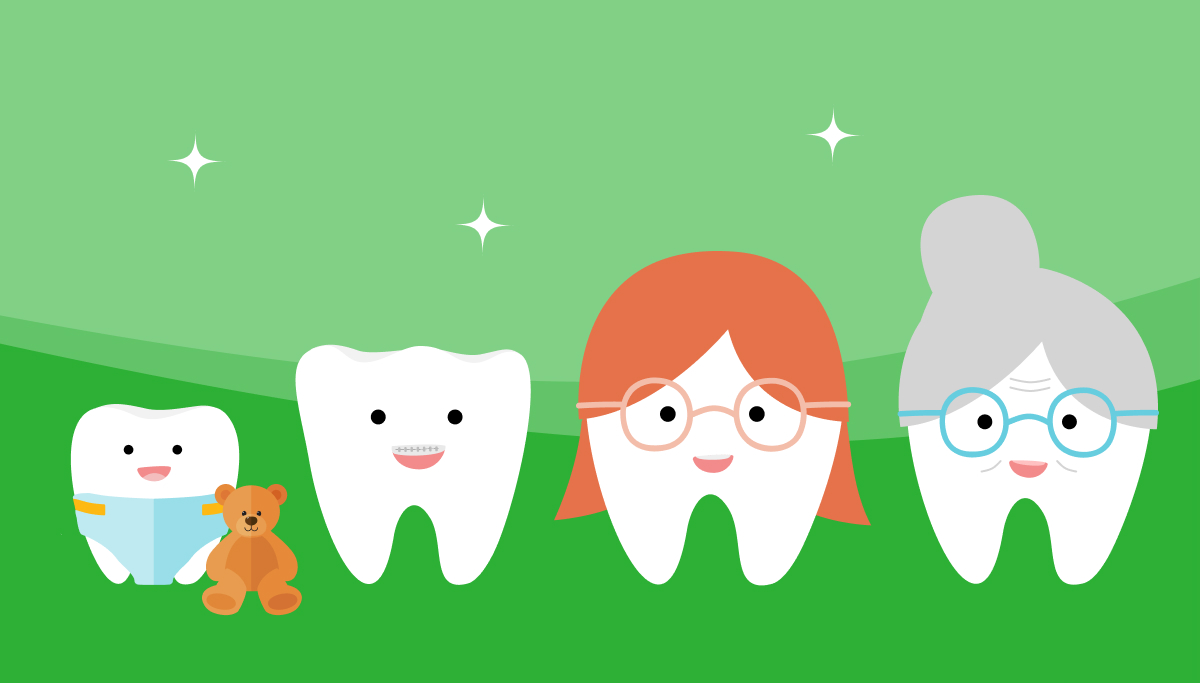1. Artificial sweeteners
4 types of sugar substitutes
If you’re watching your sugar intake and want to add a little something sweet to your everyday menu, it can be challenging. There are a wide range of sweeteners on the market that are less harmful than sugar and can help keep your smile in tip-top shape. But which one is best for you and your teeth? Here's a go-to guide for finding the right substitute.
What they are: Man-made sweeteners are several hundred times sweeter than sugar and include saccharin (Sweet‘N Low), aspartame (Equal), acesulfame potassium (Sunett, Sweet One), sucralose (Splenda), advantame and neotame (Newtame).
Glycemic index (how much a food increases blood sugar levels): 0 (Sugar is 65)
Pros: Since these sweeteners contain no sugar, they don’t cause tooth decay. And they may help balance the acidity in your mouth, reducing the number of bacteria.
Cons: While these sweeteners are safe for your teeth by themselves, they may trick the body into craving sweets on a regular basis, and if you substitute sugar products for the artificial kind, you’re exposing yourself to the risks of sugar intake again.
2. Sugar alcohols
What they are: As their name implies, sugar alcohols are a mixture of sugar and alcohol molecules. While they still contain a small number of calories, the amount isn’t nearly as much as sugar, and they don’t contribute to tooth decay and blood sugar levels. Popular sugar alcohols include erythritol, isomalt, lactitol, maltitol, sorbitol and xylitol.
Glycemic index: 1-12
Pros: The xylitol in sugarless gum actually helps fight plaque and tooth decay by reducing the number of bacteria in the mouth and increasing saliva production.
Cons: Some sugar alcohols are dangerous to pets and can cause digestive issues if consumed in large quantities.
3. Plant- and fruit-based sweeteners
What they are: These sweeteners, such as stevia and monk fruit extract, are derived from plants and fruit. Both extracts have no calories or carbohydrates.
Glycemic index: 0
Pros: Using stevia as a sugar substitute may prevent weight gain and can reduce overall blood sugar levels.
Cons: While generally safe, some studies have found stevia can disrupt your natural gut microbiome. This can disturb your oral and overall health.
4. Natural sugars
What they are: Natural sugars include honey, coconut sugar, molasses, agave nectar and dates.
Glycemic index: 15-55
Pros: These sugars have some nutrients and some compounds that provide anti-inflammatory and antioxidant benefits. Some, like agave nectar, have a lower glycemic index than table sugar. This means it’s digested and absorbed slower and won’t affect your blood sugar as much.
Cons: The natural sugars still contain sucrose and can contribute to tooth decay, so enjoy it in moderation. Molasses and honey have almost the same glycemic index as sucrose.
The bottom line
Processed sugar is not only bad for your teeth, but it contributes to obesity and conditions such as diabetes and cardiovascular disease. These substitutes, when used in moderation, can allow you to satisfy that sweet tooth without as many calories, and some of them won’t lead to tooth decay.
What causes morning breath?
Knowing the causes can help you avoid bad breath when you wake up.




